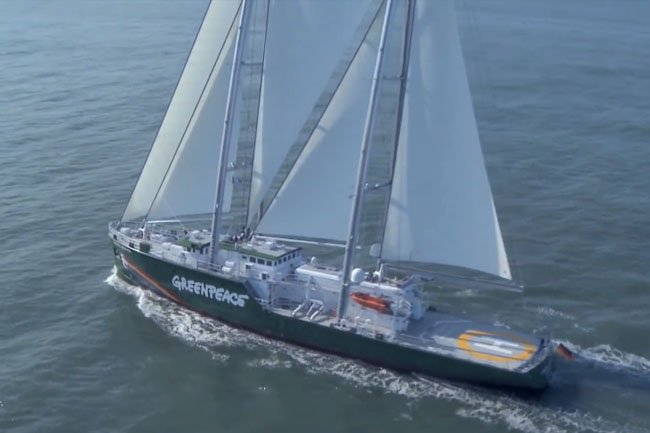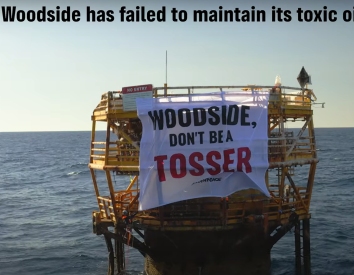A major shift towards clean energy targets is being seen among some of Australia's leading businesses and brands, writes David Ritter.
THE RAMPING UP of massive corporate demand for clean energy is one of the biggest Australian good news stories of 2020. The shift is on and it is accelerating our nation’s transition to a fully renewable-powered grid despite the intransigence in Canberra.
The decade-long failure of Australia’s federal politicians to create a meaningful emissions reduction policy has created a dilemma for major corporate energy users, whose employers, customers and stakeholders not only want certainty on a reliable, low-cost energy supply but also increasingly expect responsible climate behaviour. These firms have learned that they can’t rely on the Federal Government to deliver laws and policies to do the job.
The result is that the rush is now on for major corporations to announce their own pathways to using 100% clean energy. It has happened very suddenly, but now all of the major Australian breweries have made the shift, as have Telstra, Bunnings, Officeworks and Aldi among others. And then last week, Australia’s largest retailer, Woolworths, joined the push, committing to wind and solar to meet all its electricity needs by 2025. This combines with the international RE100 initiative, which has seen over 265 of the world’s largest companies make 100% renewable commitments. RE100 members in Australia include the big four banks, all the major tech giants, IKEA, Unilever, Mars, L’Oreal and many more.
The significance of these moves cannot be underestimated. Not only are the businesses in question some of Australia’s most highly trusted brands – Bunnings, Woolworths and Aldi are three of the top four – but they also account for significant energy use. The story is now one of trusted, smart Australian businesses moving rapidly to 100% renewable energy — which is also accelerating demand for new build renewables.
As Australia’s largest supermarket retailer, Woolworths is one of Australia’s top ten corporate energy users, representing 1% of the national electricity market all by itself. The Woolies announcement will generate 880 MW of new wind and solar — enough to power 352,000 homes and create almost 1,600 energy jobs. It’s frankly massive.
This is all in sharp contrast with the denialism and disarray which has characterised Federal Government energy policy.
And you don’t need to engage in any lack of hard-headed realism to appreciate the rapid business shift away from dirty power generated by coal to clean energy coming from renewables. Major commercial enterprises do not act without a compelling business case. The reality is that Australian companies are making the rapid leap to clean energy supplying all their electricity needs because business logic supports the wisdom of that conclusion.
As Brad Banducci, the CEO of Woolworths, said last week:
“Moving to 100% renewable electricity is the right thing to do and something a growing number of our customers, team members and shareholders expect us to lead on.”
In supporting their decision to go to 100% clean powered electricity by 2021, Aldi cited internal market research that 95% of Australian shoppers want to be sustainable and believe businesses have a responsibility to help the environment.
In my own conversations with business leaders, that combination of swiftly going to both 100% clean power being both ethically responsible and being good business in the short and long term is the common touchstone. As the CEO of one company said to me in a private conversation recently, “I have kids and I have to sleep at night, too” — but he could also articulate an immaculate business case for doing the right thing.
The rapidity of the shift of an increasing number of businesses also heightens the commercial risks for the laggards. And things are moving very fast. Only a few months ago, Coles was a leader in this space, signing two major deals to obtain 30% of their electricity from renewables. But the moves of their rivals have now left them behind.
Every Coles board member, employee, shareholder and customer is now entitled to ask themselves: if Woolies and Aldi can do it, then why can’t we? Coles proudly proclaims the corporate ambition ‘to be Australia’s most sustainable supermarket’ but given the 100% renewable energy pledges of its direct market competitors, the company will not look serious about the goal until a matching commitment is made.
Other companies would also be wise to be considering their commercial position. Telstra’s announcement places pressure on other telco giants like Vodafone and Optus, for example.
In a world of climate emergency, there are immense commercial risks for any business that is not taking appropriate action — particularly given that the reliability and affordability of renewable energy is now proven. When it comes to power supply, what is good for the planet is good for business.
David Ritter is CEO of Greenpeace Australia Pacific, adjunct professor at Sydney University and an honorary fellow of the Law Faculty at the University of Western Australia. You can follow David Ritter on Twitter @David_Ritter.
Related Articles
- Australia could potentially waste another industrial boom
- Going backwards: Australia's renewable energy investment bucks world trend
- Rubbishing the RET for King Coal by David Leyonhjelm and The Australian
- Abbott's pre-prepared RET review does the business for Big Mining
- Moving to a clean energy future or conflict and litigation?
 This work is licensed under a Creative Commons Attribution-NonCommercial-NoDerivs 3.0 Australia License
This work is licensed under a Creative Commons Attribution-NonCommercial-NoDerivs 3.0 Australia License
Support independent journalism Subscribe to IA.














